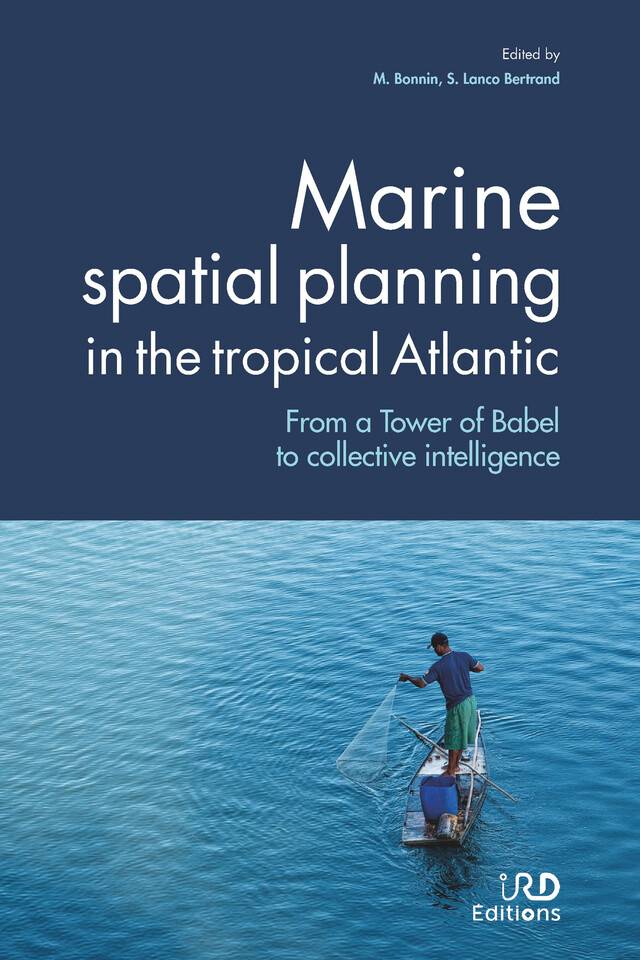Résumé
The goal of marine spatial planning is to manage uses of marine space to reduce tensions between human activities and the health of marine ecosystems. This is a major and complex challenge, as oceans lie at the intersection of multiple and increasing interests: biodiversity conservation, climate change regulation, economic development, food security. This handbook takes an interdisciplinary, sustainability science approach to explore the potential and limitations of marine spatial planning, a tool developed in the Global North, and its current or possible future applications in the tropical South Atlantic – specifically in Brazil, Senegal and Cabo Verde. To protect our global ocean commons, communities of stakeholders need to transcend disciplinary boundaries and bring together diverse knowledge to move towards a shared goal of sustainability (part 1). The development of this collective intelligence in tropical marine ecosystem research must take into account local, national and international issues (part 2) and can be supported by innovative interdisciplinary tools (part 3). This handbook is aimed at decision-makers, researchers and, more generally, all users of marine areas, highlighting crucial points to consider when implementing marine spatial planning.
Caractéristiques
Editeur : IRD Éditions
Collection : Synthèses
Publication : 11 septembre 2023
Intérieur : Noir & blanc
Support(s) : Text (eye-readable) [PDF + ePub + Mobipocket + WEB]
Contenu(s) : PDF, ePub, Mobipocket, WEB
Protection(s) : Marquage social (PDF), Marquage social (ePub), Marquage social (Mobipocket), DRM (WEB)
Taille(s) : 11 Mo (PDF), 22 Mo (ePub), 43 Mo (Mobipocket), 1 octet (WEB)
Langue(s) : Anglais
Code(s) CLIL : 3177
EAN13 Text (eye-readable) [PDF + ePub + Mobipocket + WEB] : 9782709929974
Ouvrages dans la même collection
Planification spatiale marine en Atlantique tropical D'une tour de Babel à l'organisation d'une intelligence collective
2,99 €





